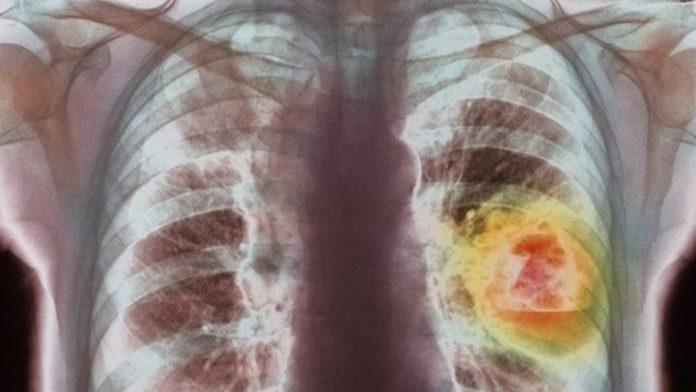Though genetic and lifestyle factors can play a significant role in the development of certain cancers, a new study has found that bad luck in mutating stem cells is the biggest risk factor for 2/3 of all cancers overall.
The study was conducted by Cristian Tomasetti and Bert Vogelstein of Johns Hopkins University School of Medicine and Johns Hopkins Kimmel Cancer Center, respectively.
New research shows that random changes or ‘mistakes’ in DNA when cells are dividing cause nearly two-third of all cancers in humans. These changes are neither caused by external factors like smoking or exposure to harmful chemicals, nor by hereditary factors.
In order to determine how random mutations influenced the risk of developing cancer, Tomasetti and Vogelstein searched existing studies that quantified the number of cell divisions that stem cells undergo over the course of a lifetime in over 30 different types of tissue.
They found a correlation between the total number of times a stem cell will divide in a tissue with the likelihood that the tissue will develop cancer.
This is likely due to the fact that the more times DNA is replicated for cell division, the more likely it becomes that there will be an error and mutations will occur. If the mutation is not edited properly, it will remain in the sequence, adding to other mutations that could be acquired in the future. If this continues, it can lead to cancer.
This is the first study to examine the chances of this occurrence quantitatively.
They are chance events occurring at the molecular level. In other words, cancer can strike anybody.
“All cancers are caused by a combination of bad luck, the environment and heredity, and we’ve created a model that may help quantify how much of these three factors contribute to cancer development,” Vogelstein said.“Cancer-free longevity in people exposed to cancer-causing agents, such as tobacco, is often attributed to their ‘good genes,’ but the truth is that most of them simply had good luck,” he said.
This study explains why cancer is known to strike people who follow all the rules of healthy living,nonsmoker, healthy food habits,healthy weight, little or no exposure to known carcinogens,and have no family history of the disease.
The researchers studied all 32 cancer types and estimated that 66% of cancer mutations result from copying errors, 29% can be attributed to lifestyle or environmental factors, and the remaining 5% are inherited.
Different types of cancers have different origins, the researchers found. For example, in pancreatic cancers, 77% are due to random DNA copying errors.
Lung cancer is most likely to be caused by environmental factors, mostly smoking. About 65% of all the mutations are due to smoke and 35% due to DNA copying errors.
In other cancer types, such as those of the prostate, brain or bone, more than 95% of the mutations are due to random copying errors.
“This study shows that you can add to your risk of getting cancers by smoking or other poor lifestyle factors. However, many forms of cancer are due largely to the bad luck of acquiring a mutation in a cancer driver gene regardless of lifestyle and heredity factors. The best way to eradicate these cancers will be through early detection, when they are still curable by surgery,” concludes Vogelstein.


























